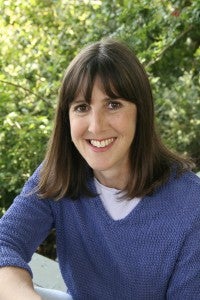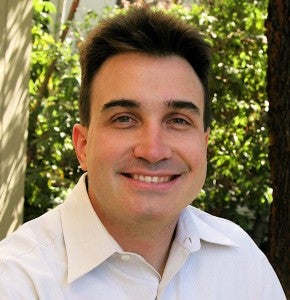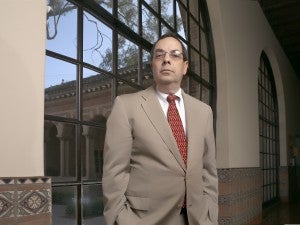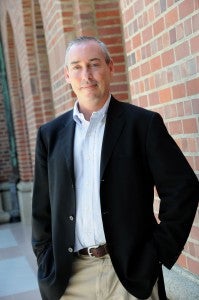#Election2016: Trying to rock the millennial vote
USC experts discuss why millennial voters may prove crucial to deciding the next president and how the candidates might sway this demographic
Contact: Gretchen Meier at gmeier@usc.edu or (213) 740-6973
In addition to the experts below, USC is hosting a a viewing of the first debate and a pre-debate panel.
The panel, “Behind the Scenes: Preparing and Spinning Presidential Debates,” will include:
- Judy Muller, award-winning TV journalist, NPR commentator and USC Professor of Journalism
- Antonia Hernandez, Commission on Presidential Debates Board Member, CA Community Foundation President/CEO
- Gordon Stables (quoted below), Assistant Dean of Student Affairs at the USC Annenberg School and USC Director of Debates and Forensics
- Geoffrey Cowan, head of the USC Annenberg School’s Center on Communication Leadership and Policy and USC University Professor
The panel will be held in the Wallis Annenberg Forum/Lobby beginning at 5 p.m. The presidential debate will begin at 6 p.m.
To attend this event, please RSVP to Gretchen Parker McCartney via email at gretchen.parker@usc.edu.
____________________________________________
“Over the last few weeks there has been a growing recognition of the importance of millennial voters in this campaign. The debates provide a rare opportunity for both candidates to directly address voters. According to polling data, Hillary Clinton is notably underperforming in support from millennial voters, even those who self-identify as interested in Democratic issues and values. The first debate will be an important moment for her to explain why it is important for millennials to vote for her, especially for those considering voting for Jill Stein or Gary Johnson. Donald Trump’s challenge is to persuade millennial voters that his candidacy is more important to them than their differences of opinion with him on social issues and embracing diversity. Expect to see the candidates making overt appeals to the urgency of millennial votes.”
Gordon Stables is an assistant dean at the USC Annenberg School and director of the Trojan Debate Squad.
Contact: stables@usc.edu or (213) 740-2579
____________________________________________
“Millennials are of critical importance, but that has been true for the past three elections. President Barack Obama put together a coalition of millennials, minorities and women for the Democratic Party. This election, millennials are the only reluctant part of that coalition.
“The key to Hillary Clinton’s victory would be for millennials to vote for her instead of a third party candidate. Clinton’s approach is the right one: arguing the millennials’ case on the basis of issues and alignment between her proposals and policies with their issues, such as free or debt-free college, climate change, reproductive rights, the economy and jobs. The more tactical side, but less persuasive case would involve saying, ‘a third party vote is a vote for Trump.’
“Millennials are not interested in Donald Trump. Not only are Trump’s policies not aligned with their views, but 1 in 5 millennials has an immigrant parent, and they disagree on issues, as well as the tone and tenor of his candidacy. He is the antithesis of millennial culture and beliefs. He could only make the case to some millennials who are ideologically aligned.”
Morley Winograd is a senior fellow at USC Annenberg School’s Center on Communication Leadership and Policy. He is an expert on millennials and their impact on American politics and its institutions. He has co-authored three books with Michael Hais: “Millennial Majority,” “Millennial Momentum” and “Millennial Makeover.”
Contact: mikeandmorley@gmail.com or (213) 448-8884
____________________________________________
“Young adults are on average turned off by politics, with the majority expressing skepticism about the intentions of politicians, and the system more broadly. In general, politicians are framed as careerists who really aren’t interested in making positive changes in society. Young adults perceive the system largely existing to serve the needs of the political and corporate classes.
“That religion may play a meaningful role for young adults in the national election is doubtful, primarily because most young adults are as ambivalent about religion as they are about politics. But to the extent that religion does play a role, and assuming young adults actually go to the polls, their religious commitments (such as they are) could drive some to vote for Trump because they see him as an ‘authentic’ person. These would likely be those who remain involved in religious institutions, although not exclusively.
“On the other hand, Trump’s comments could serve to mobilize those who are more committed to either a ‘peace and justice’ faith perspective (whatever their faith), as well as the many young adults who would be opposed to the heavy-handed authoritarian measures that Trump is touting, such as mass-deportations, building a border wall and the like, to vote for Hillary Clinton.”
Richard Flory is the director of the research and evaluation for the USC Center for Religion and Culture at the USC Dornsife College of Letters, Arts and Sciences.
Contact: (213) 740-2155 or rflory@usc.edu
____________________________________________
 Matchmakers toe the “party” line
Matchmakers toe the “party” line
“It used to be that you could run television commercial or ads in the major newspapers and reach almost anyone. We don’t have the central sources of information we used to and we expect information to come to us where are. Campaigns are looking at the various opportunities — Snapchat, Facebook, Instagram, Tumblr and others — based on what audience they are searching for, and part of that is how engaged people are on a given platform. When you find people where they are engaged and not just passively looking at content, you get grassroots outreach rather than sending information from the top down.
“It’s a shockingly smart and innovative approach taken by the campaigns to find people on dating sites because they are already engaged and actively involved. By adding political filters to dating profiles, campaigns are getting people to promote or work against a candidate by sharing information with strangers.
“Why would a dating site allow itself to become politicized? The platform is an obvious area where people are going to engage and debate, and this allows them to find people who share their interests and beliefs. Taking this step gives a site or app the chance to become the latest trend.”
Karen North is director of the USC Annenberg School’s program on online communities and is an expert in social media, digital privacy and psychological research.
Contact: (310) 650-5689 or knorth@usc.edu
____________________________________________
Earlier this month, USC partnered with the Los Angeles County Registrar-Recorder/County Clerk’s office in a friendly voter registration competition against crosstown rival UCLA. Each university will compete to see which can gather the most applications from eligible students ahead of the Oct. 24 deadline to register to vote in the Nov. 8 Presidential General Election.
“In football and basketball, our two schools may be longtime rivals. But when it comes to getting young people to vote, USC and UCLA are definitely on the same team,” said Dan Schnur, director of the USC Dornsife College’s Jesse M. Unruh Institute of Politics.
#Election2016
#VoteOn







